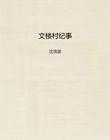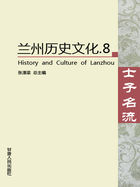"And thinking itself, in this age of separations, may become a peculiar craft."(A. Ferguson, An Essay on the History of of Civil Society , Edinburgh 1783 [II 108, 109, 110])To bring this literary survey to a close, we expressly deny that "all economists have insisted far more on the advantages than on the drawbacks of the division of labor". It suffices to mention Sismondi.
Thus, as far as the advantages of the division of labor are concerned, M. Proudhon had nothing further to do than to paraphrase the general phrases known to everybody.
Let us now see how he derives from the division of labor, taken as a general law, as a category, as a thought, the drawbacks which care attached to it. How is it that this category, this law implies an unequal distribution of labor to the detriment of M. Proudhon's equalitarian system?
"At this solemn hour of the division of labor, the storm winds begin to blow over humanity. Progress does not take place for all in an equal and uniform manner.... It begins by taking possession of a small number of the privileged.... It is this preference for person on the part of progress that has for so long kept up the belief in the natural and providential inequality of conditions, has given rise to castes, and hierarchically constituted all societies."(Proudhon, Vol.I, p.94)
The division of labor created castes. Now, castes are the drawbacks of the division of labor; thus, it is the division of labor that has engendered the drawbacks. Quod erot demonstranduM. ["Which was the thing to be proved."]
Will you go further and ask what made the division of labor create castes.
hierarchical constitutions and privileged persons? M. Proudhon will tell you: Progress. And what made progress? Limitation. Limitation, for M. Proudhon, is acceptance of persons on the part of progress.
After philosophy comes history. It is no longer either descriptive history or dialectical history, it is comparative history. M. Proudhon establishes a parallel between the present-day printing worker and the printing worker of the Middle Ages; between the man of letters of today and the man of letters of the Middle Ages, and he weighs down the balance on the side of those who belong more or less to the division of labor as the Middle Ages constituted or transmitted it. He opposes the division of labor of one historical epoch. Was that what M. Proudhon had to prove?
No. He should have shown us the drawbacks of the division of labor in general, of the division of labor as a category. Besides, why stress this part of M. Proudhon's work, since a little later we shall see him formally retract all these alleged developments?
"The first effect of fractional labor," continues M. Proudhon, "after the depravation of the soul, is the pro- longation of the shifts, which grow in inverse ratio to the sum total of intelligence expended.... But as the length of the shifts cannot exceed 16 to 18 hours per day, the moment the compensation cannot be taken out of the time, it will be taken out of the price, and the wages will diminish.... What is certain, and the only thing for us to note, is that the universal conscience does not assess at the same rate the work of a foreman and the labor of a mechanic's assist-ant. It is therefore necessary to reduce the price of the day's work; so that the worker, after having been afflicted in his soul by a degrading function, cannot escape being struck in his body by the meagreness of his remuneration."[I 97-98]
We pass over the logical value of these syllogisms, which Kant would call paralogisms which lead astray.
This is the substance of it:
The division of labor reduces the worker to a degrading function;to this degrading function corresponds a depraved soul; to the depravation of the soul is befitting an ever-increasing wage reduction. And to prove that this reduction is befitting to a depraved soul, M. Proudhon says, to relieve his conscience, that the universal conscience wills it thus.
Is M. Proudhon's soul to be reckoned as a part of the universal conscience?
Machinery is, for M. Proudhon, "the logical antithesis of the division of labor", and with the help of his dialectics, he begins by transforming machinery into the workshop.
After presupposing the modern workshop, in order to make poverty the outcome of the division of labor, M. Proudhon presupposes poverty engendered by the division of labor, in order to come to the workshop and be able to represent it as the dialectical negation of that poverty. After striking the worker morally by a degrading function, physically by the meagreness of the wage; after putting the worker under the dependence of the foreman, and debasing his work to the labor of a mechanic's assistant, he lays the blame again on the workshop and the machinery for degrading the worker "by giving him a master", and he completes his abasement by making him "sink from the rank of artisan to that of common laborer". Excellent dialectics!
And if he only stopped there! But no, he has to have a new history of the division of labor, not any longer to derive the contradictions from it, but to reconstruct the workshop after his own fashion. To attain this end he finds himself compelled to forget all he has just said about division.
Labor is organized, is divided differently according to the instruments it disposes over. The hand-mill presupposes a different division of labor from the steam-mill. Thus, it is slapping history in the face to want to begin by the division of labor in general, in order to get subsequently to a specific instrument of production, machinery.
Machinery is no more an economic category than the bullock that drags the plough. Machinery is merely a productive force. The modern workshop, which depends on the application of machinery, is a social production relation, an economic category.
Let us see now how things happen in M. Proudhon's brilliant imagination.















